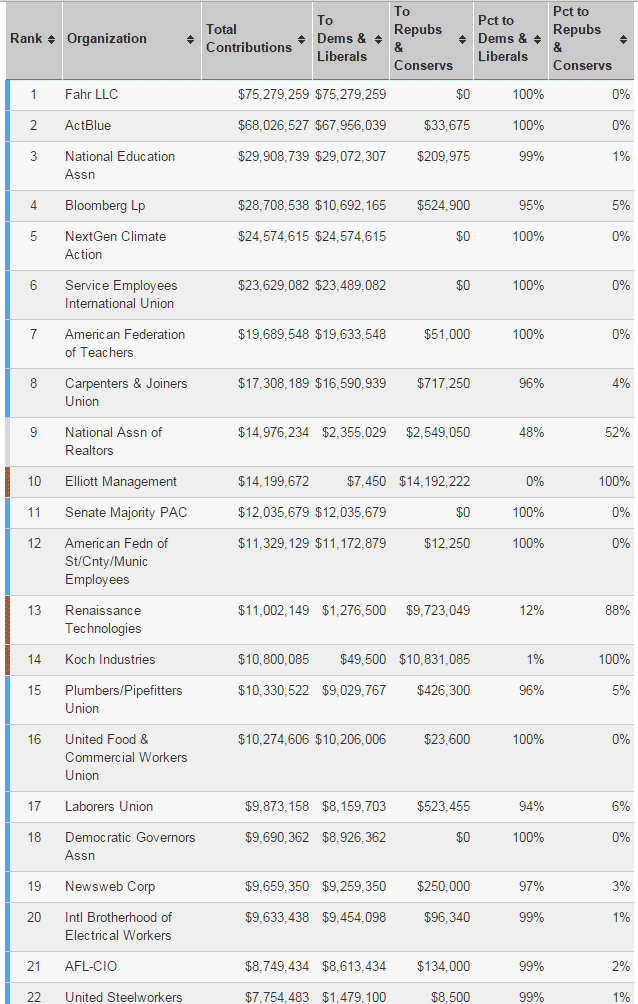Is Trump Smart Because He is Rich? Or Rich Because He Is Smart? Is He Even Rich?
I told my wife a number of times that my guess is that Trump won't release his taxes because they don't show nearly enough income to justify his ego. Time and again I see he and his cohorts and even the media throwing around eye-popping revenue numbers for him. Well, I can tell you from long, sad experience that merely having large revenue numbers won't get you anywhere - they have to actually be higher than expenses to be meaningful. I was a part of several early Internet startups that rode tens of millions of revenue right into liquidation.
Here is my hypothesis of what makes Trump rich:
- He started with family money. No shame in that, lot's of people have done productive things with the capital accumulated by prior generations of their family. But in Texas we used to have a saying -- the best way to make a million dollars is to start with $10 million. Is Trump's fortune larger today than it would have been if, say, he had just shoved all of dad's money into stocks?
- He has the political clout to swing real estate deals average people cannot. Real estate in New York and Atlantic City is entirely driven by crony capitalism, and Trump is a master. Let's say I have a piece of land that is worth X. It would be worth X+Y if I could build the building I want on it, but I can't get the permissions I need. Trump can, buys it for X, and then makes Y profit from his political pull. The example of his getting his cronies in the Atlantic City government to condemn a woman's home so he could pave it over for limo parking is just the ugliest of many, many such examples.
- He extracts rents from investors, even when investors lose money. I don't know if there is an economic name for this, but there should be. Trump's investors, particularly his bondholders, have frequently lost millions on his real estate and casino investments -- both in his many bankruptcies and his frequent debt restructurings, which he brags about on the campaign trail. These investments are losing money and going bankrupt, so they can't be generating free cash flow. Somehow Trump is saddling investors with the losses AND extracting income for himself personally. Steven Job's lifestyle was paid for by people who voluntarily bought iphones and valued them enough to pay more for them than it cost to make them. I hypothesize that Trump's lifestyle is paid for out of invested capital, and not out of profits. Which of course leaves open the question of why investors continue to sign up for this treatment. I understand why donors give to the Clinton Foundation despite the fact that the Foundation does relatively little actual charity work -- donors are looking for influence with the Clintons. But why do Trump investors keep dumping in more money? Could it be charisma? Certainly Trump has an excess.
- Trump's best investments seem to be ones where his charisma comes into play -- his TV shows come to mind. Beyond the TV shows, there is a long string of business failures, from steaks and schools to casinos.
Postscript: To be fair, I will add that I have in the past been a fan of his hotel on the strip in Las Vegas. The hotel provides a screaming good value (you can almost always get a huge discount off rack rate) for an exceptionally nice room in a good location -- and in a non-casino hotel to boot. I used it for years as a low-cost location for manager meetings. The staff there is great -- the only problem is one has to look past the tacky gold gilding on everything and the goofy Trump-branded swag in the gift shop. I will add, though, apropos to this post, there is no way on God's green Earth that this hotel makes money, at least if it is paying all of its capital costs (it is possible there was a bankruptcy at one point where Trump said "you're fired" to the bondholders). If you ever stay there, by the way, it has the best view of the strip in Vegas because it is right at a bend and can look straight down the street. Ask for a high room on the south side.
Update: LOL, looking at #3, I think we do already have a name for this phenomenon of extracting rents from investors even when the investments are losing money -- it is called a hedge fund. Given that hedge funds generally do not consistently outperform the market and result in outsize compensation for their managers even when the fund loses money (pretty sure Chelsea Clinton's and her husband did not give back any of the management fees they pulled down despite their hedge fund tanking most of their investor's money).
Update #2: Being a billionaire is no guarantee that one knows anything about even basic economics: Nick Hanauer argues the way to prosperity is to impose a $28 minimum wage.
